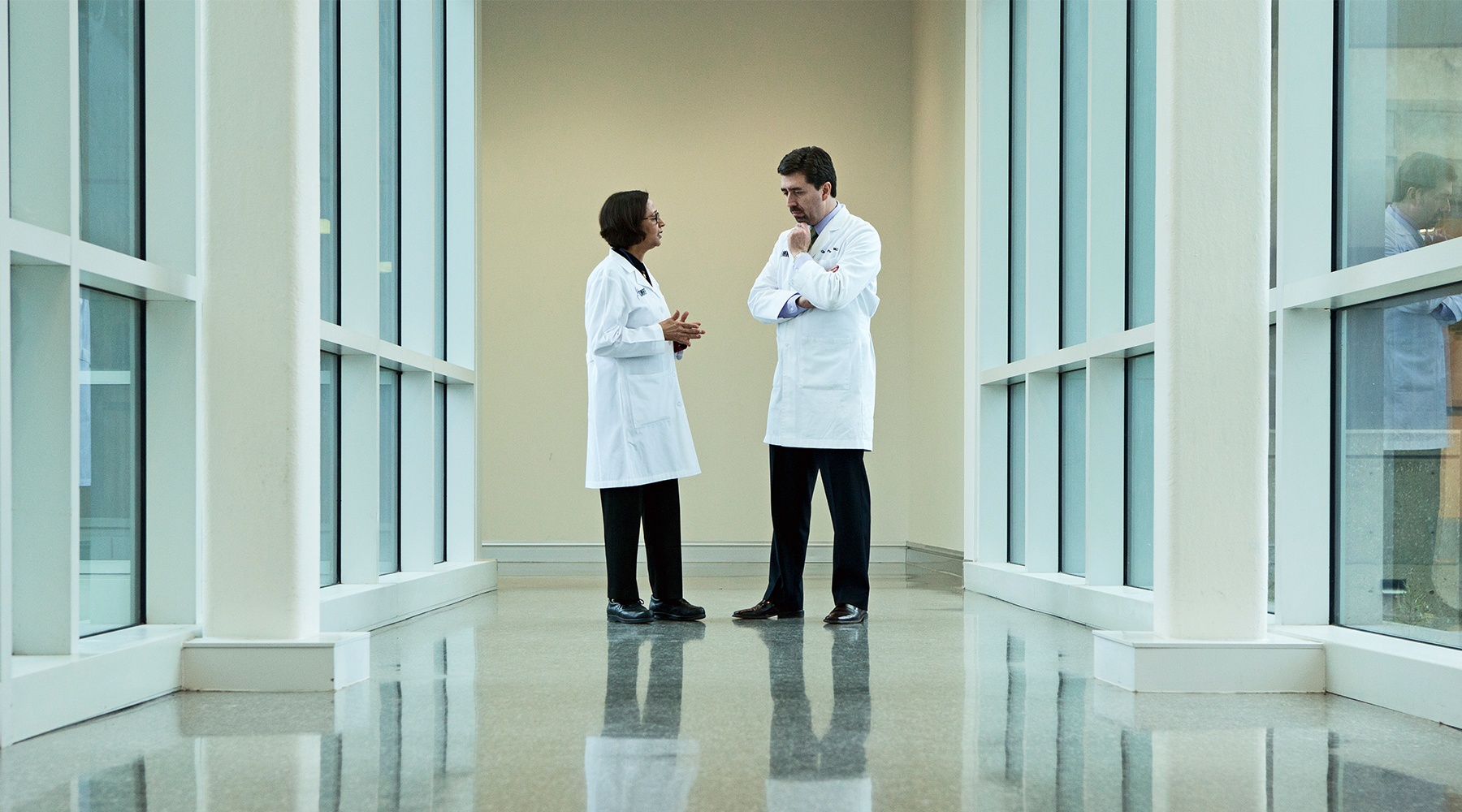Dr. Gabriel Pardo & Dr. Farhat Husain
Imagine the fear that grips a young mother when you tell her she has MS. It’s devastating news. But you know you can help her. And you vow to walk beside her, wherever her condition takes her.
You take your time with each of the 2,000 people you treat. Because you know there’s no such thing as an “average” MS patient.
So how do you treat a disease with hundreds of possible symptoms? A disease that impacts not only the body but the person’s entire life. A disease so difficult to pinpoint that it can lie undiagnosed for years. How do you make a real impact?
You assemble a team dedicated to helping the whole person and design a comprehensive approach. Using the newest drugs available, you do your best to keep the illness at bay. In addition, you improve quality of life by addressing each symptom independently. Eye problems, gait difficulties, imbalance, bladder issues, cognition, mood changes and sensory abnormalities all can improve.
At OMRF, you offer a supportive environment with everything your patients need in one place. You stand beside them beyond the office visits, because MS affects far more than the body alone. Do they need a wheelchair or help with insurance? Advice from a social worker? Or maybe they can’t find services in their hometown. Whatever the challenge, you and your team help give patients whatever they need as they navigate the new waters of life.
And you teach others about this mysterious disease. You share your expertise with other healthcare professionals. You encourage patients to become their own advocates.
Despite all your efforts, sometimes MS comes out ahead. And yet, even if MS has stilled their bodies, you marvel at the fight in their eyes. Though their voices may come in a whisper, they still greet you with a smile. Their courage inspires you. They ignite a passion in you like nothing else can.
You realize that you can’t complain about anything in your own life. For in your patients, you see determination. Dignity. Hope. When MS knocks them down, they keep getting up. And it’s your job—your calling—to walk beside them. Because discoveries are happening at an unprecedented rate. You are making a difference. And one day, you’ll beat this disease.
Research + the Future
After decades of research, recent years have brought a rapid rollout of new and sophisticated drugs that are changing how doctors care for patients with MS. But the biggest advances may yet lie ahead.
Researchers have made a series of new findings about the biological roots of MS. Identifying the genes that control development and progression of the disease will allow physicians to identify people who have the greatest risk of developing MS and then to intervene earlier to slow or even prevent disease onset.
Genetic data will also help doctors determine the most effective courses of treatment, says OMRF’s Dr. Judith James. “The disease varies from patient to patient. Knowing a person’s genetic makeup will allow doctors to understand whether he or she will likely benefit from a particular drug.”
The best medical research questions, says James, come from doctors’ observations while treating patients. Right now, OMRF is in the process of recruiting a laboratory-based researcher to study the issues that Drs. Pardo and Husain are encountering as they treat thousands of people with MS.
Questions like: Why do certain drugs work in some people but not others? And how can we change outcomes for patients who don’t respond to treatments we have now? “If OMRF can help find answers,” says James, “we can improve the lives of people with MS.”



